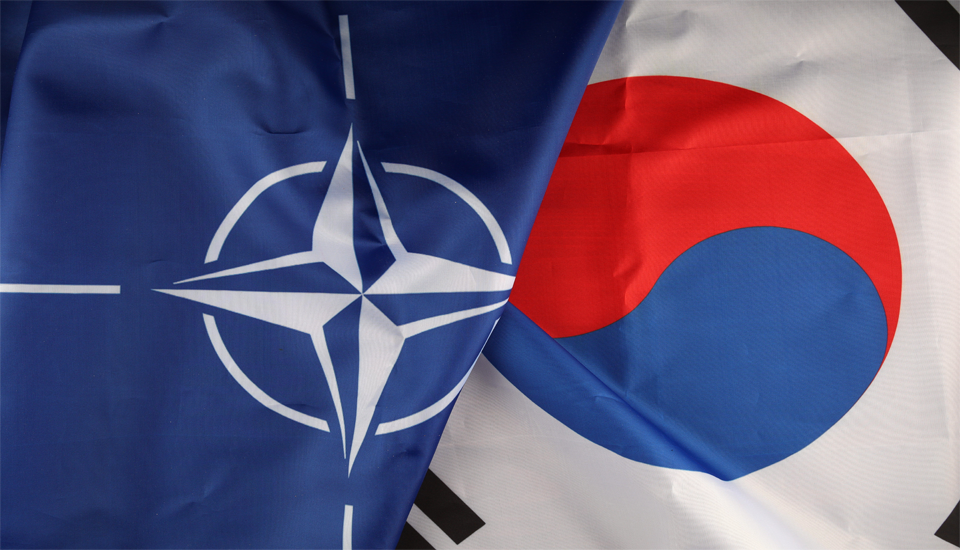Tokyo’s View on the Korean Peninsula and Regional Security
Commentary | July 27, 2022
Ryo Sahashi
Associate Professor at the International Relations Institute for Advanced Studies in Asia at the University of Tokyo
In this Commentary, Ryo Sahashi, Associate Professor at the University of Tokyo, discusses North Korea’s continued military armament and nuclear proliferation and stresses the importance of ROK-U.S.-Japan cooperation in countering this threat. Specifically, Dr. Sahashi notes that the international community needs to maintain its goal of the complete denuclearization of North Korea and that Japan and South Korea, whose security are indissolubly intertwined, must first focus on building a strong partnership. He argues that the recent victory of the Liberal Democratic party and solid political base present Tokyo with an opportunity for a proactive North Korean policy, one that might include increased diplomacy with Seoul.
Rising Security Concerns on North Korea
North Korea views building nuclear deterrence as essential not only for maintaining security, but also for the survival of its regime. Accordingly, Pyongyang has launched a variety of missiles in different forms and aims to use them as a means of conventional welfare. It has also publicly stated that it is developing a hypersonic gliding missile. The Japanese government believes that North Korea is now equipped with the ability to miniaturize nuclear weapons to use as warheads, is likely already able to attack Japan, and is working to advance its nuclear first-strike and retaliatory strike capabilities.
Clearly, the international community’s sanctions have not been effective enough in discouraging North Korea from developing its nuclear and missile programs. It is undeniable that Pyongyang could conduct a nuclear test at any time, should it decide to do so. In light of the aforementioned statement, Japan has discussed the potential of establishing a missile defense system, strengthening the Japan-U.S. alliance, and building its counterattack capabilities.
In addition, North Korea has caused damage on a global scale via its cybercrimes; Japan is not exempt from this. John Park explained at a congressional hearing in May of this year that North Korea is already more of a criminal than a state. [1] The Japanese police also told the Yomiuri Shimbun that many North Korean engineers had entered Japan to prevent their IP address from being traced back to North Korea, making it easier for their cybercrimes to go undetected while also allowing them to earn foreign currency. [2] As North Korea’s growing cyber-capabilities have emerged as a grave concern, it is imperative for Japan to protect its critical infrastructure.
The international community needs to maintain its goal of the complete denuclearization of North Korea. To begin with, negotiations should not offer North Korea the upper hand. While it is true that Pyongyang could use its nuclear weapons as a bargaining chip, it would be disastrous if this process were to worsen the regional security environment. Pursing the so-called ‘arms control approach’ would not only allow Pyongyang to maintain a fair number of nuclear weapons, but also lead to talks on restraining the operations of United States Forces Korea (USFK). This would dramatically alter the regional security environment and could shake the credibility of the U.S. to its core. From Japan’s perspective, the amalgamation of the above issues, including, but not limited to the recognition of North Korea as a nuclear state, the weakening of the U.S.-ROK alliance, coupled with uncertainty in the Taiwan Strait, will push Japan to employ multiple strategic responses that have never taken place prior.
While the Biden administration has been placing a greater focus on North Korean advancements on intercontinental ballistic missiles (ICBM), this is not ideal for Japan. It is possible that Biden may seek to negotiate with North Korea after the U.S. midterm elections in order to seek diplomatic results. However, it is unlikely such desperate attempts by Washington could result in a substantial commitment from Pyongyang to halt its nuclear and missile programs, including developing other forms of missiles. That is why Japan and South Korea, whose security are indissolubly intertwined in the regional theater, must first focus on building a strong partnership. In the event of another nuclear test, Washington may issue a more urgent call for diplomatic efforts to obtain a moratorium on further nuclear or ICBM tests. Even though there is a certain significance to securing a temporary reprieve, there is little assurance that it would lead to sustainable regional security.
Pressure Will Merit Regional Stability
It is important to prevent North Korea from taking the initiative on denuclearization negotiations. Symbolically speaking, it should not be in the driver’s seat; instead, its license should be revoked. Tokyo has no appetite for dialogue with Pyongyang. To illustrate, while the Pyongyang Declaration entails the resolution of the nuclear missile issue and Japan seeks to negotiate on the abduction issue based on the Stockholm Accord, North Korea has demonstrated untrustworthy behavior on all fronts. Tokyo should therefore not hastily proceed to alleviate pressure on Pyongyang. It is essential for Japan and the international community to ensure a method of verifying any possible nuclear development that includes inspections and it is crucial to discuss North Korea’s overall military capabilities, including short- and intermediate-range missiles and other weapons of mass destruction, in order to ensure regional security.
The general perception of distrust regarding North Korea is deep-rooted in Japan. Unless Pyongyang first adopts a high-cost policy, Tokyo will remain skeptical towards it. However, this is unlikely to occur given that making significant concessions ahead of time is considered a high governance risk for the North Korean leadership. Conversely, there is little need for Japan to take conciliatory measures first.
Japan is highly keen on avoiding war and is inclined to establish regional peace with North Korea in the long term. The results of the Hanoi Summit were not conducive to resolving this issue. Nevertheless, it is still important to leave opportunities open for future dialogue with Pyongyang. An approach that unilaterally pushes it into isolation is inappropriate; rather, changes in North Korea’s behavior should be incentivized in different stages. Humanitarian aid to North Korea should continue, as should assistance in the wake of the spread of COVID-19. While it is difficult to imagine Japan lifting its own sanctions for this purpose, it could provide support for North Korea, which could catalyze dialogue with the regime on other issues.
Most important is the degree to which the U.S., China, South Korea, Russia, and Japan can find common ground on the North Korean issue. In particular, the fact that China has provided North Korea with a loophole in the sanctions regime remains a concern. Although the political positions of the five countries remain divided due to the accelerating rivalry between the U.S. and China and Russia’s aggression toward Ukraine, they should seek to cooperate, realizing that it is not in their best interest for North Korea, an unpredictable entity, to enhance its capabilities, including developing nuclear missiles, and to continue to disrupt international stability. In particular, China should recognize the relative importance of cooperation on the North Korean issue—rather than focusing on global conflicts—if it wants to stabilize relations with the U.S., even while engaging in long-term competition with the U.S. over military and technological supremacy.
Japan-ROK Partnership is Critical
With a recent victory in the House of Councilors election, Japan’s 100th Prime Minister Fumio Kishida and the Liberal Democratic Party will enjoy three golden years, controlling both houses of the Diet with a substantial majority. The Komei Party, a coalition partner and cabinet ally to Kishida, and the Japan Innovation Party, whose ideas on constitutional reform and other issues are similar to those of Kishida, have also steadily gained seats in the Diet. The Japan Innovation Party’s similar ideology regarding constitutional reform seems to be an additional boon, but the Komei Party remains cautious on security policy.
Will the Kishida administration use this abundance of political resources to take proactive action regarding Japan’s North Korea policy? At this point, it is hard to imagine that Kishida will engage in negotiations with Pyongyang with a seemingly low chance of success. The usual course of action is to promote discussions on securing support for increasing the defense budget and introducing counterattack capabilities.
Prospects of Kishida possibly utilizing his solid political base to strengthen relations with South Korea, subsequently providing a necessary deterrent to North Korea, does not warrant much optimism. However, since the U.S. is pushing hard to promote trilateral relations and Japanese and Korean business communities are seeking to improve relations, Kishida will likely engage in diplomacy with South Korea, provided that engagement does not leave domestic parties of interest to believe that he has made concessions. One cause for concern, however, is the death of Shinzo Abe, the former prime minister and influential politician within the party. Conservative forces within the Liberal Democratic Party will push to promote their realist beliefs on security.
It is important, both for Japan and South Korea, that the U.S. policy regarding the Korean Peninsula remain consistent, prioritize the assurance of regional security, and avoid unproductive negotiations. Both governments should cooperate to induce Washington to be a more reliable ally. In addition, the U.S. must recognize that enhanced defense efforts are necessary steps in deterring and responding to the rising security challenges from North Korea. Finally, it is encouraged that the two countries work with more international actors to provide humanitarian assistance, including medical aid, to North Korea to widen possible diplomatic frontiers.■
[1] Hearing on the Subcommittee on Asia, the Pacific, Central Asia, and Nonproliferation, Before the Committee on Foreign Affairs, House of Representatives (2022) (statement of John Park)
[2] Yomiuri Shimbun, “Papers Sent to Prosecutors over Illegal Money Transfers to North Korean IT Developers,” May 18, 2022.
■ Ryo Sahashi is Associate Professor at the International Relations Institute for Advanced Studies in Asia at the University of Tokyo. Concurrently, he serves as Research Fellow, Japan Center for International Exchange. He regularly contributes to NHK, Nikkei, Asahi, Mainichi, Yomiuri and other major media outlets. Dr. Sahashi has taught at Kanagawa University as professor until March, 2019 and has been Visiting Associate Professor, Walter H. Shorenstein Asia Pacific Research Center, Stanford University and Shigeru Yoshida Chair, Instituto Tecnológico Autónomo de México (ITAM). He joined University of Tokyo from April, 2019, and concurrently, Associate Professor, Future Vision Research Institute, the University of Tokyo. He also served as adjunct Senior Research Fellow at Sasakawa Peace Foundation, Tokyo Foundation-German Marshall Fund of the United States Partnership Fellow, and Guest Researcher for First Special Committee Research Office, House of Councilors. He is the member of UK-Japan 21st Century Committee. He received his B.A. from International Christian University and his Ph.D. from the Graduate Schools for Law and Politics at the University of Tokyo. He also studied at Department of Political Science, University of Illinois at Urbana-Champaign.
■ Typeset by Seung Yeon Lee, Research Associate; Arabella Christiansen, Intern; Sarah MacHarg, Intern
For inquiries: 02 2277 1683 (ext. 205) | slee@eai.or.kr
Security and External Relations
#

A Study on Humanitarian Aid to North Korea
Juhyun Um | 21.July.2022

President Yoon's Trip to Madrid: Rethinking Seoul's Policies toward Moscow, Beijing, Tokyo, and Pyongyang
Yang Gyu Kim | 11.July.2022
The Yoon-Biden Summit and Prospects for the Yoon Administration’s North Korea Policy
Young-ho Park | 21.June.2022
LIST